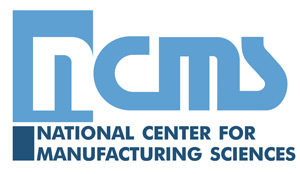Vehicle Health Management System (VHMS)
NCMS Project #: 140984
Problem: As technology continues to develop and is infused in new and existing platforms there is more vehicle prognostic data becoming available. This enables a new maintenance philosophy of leveraging vehicle data to provide visibility into the asset’s condition while improving availability and decreasing the overall maintenance burden. While the Service Branches strive to implement CBM+, there are obstacles in acquiring and consolidating the data required to implement CBM+.
Benefit: Having a data platform that not only anticipates when maintenance is actually needed rather than scheduled due to manual suggestions, but also advises on what parts to have on hand when assets do break, would save US industries untold time and money, as well as employees redundant maintenance and sustainment efforts.
Solution/Approach: At a high level, the team will take a distinctive and industry tested approach to the problem, consisting of phases: Process Analysis and Definition, Data Model Definition and Registration, Security Enhanced Maintainer Support Device (SE MSD) Integration, and Vehicle Health Management Recommendations and Support. The overall objective of this project is to identify a process to analyze data that is off-loaded from VHMS-supported vehicles, define the model associated with vehicle analytical data, integrate the Secure Maintainer’s Support Device (MSD) for vehicle data off-loading, and define the Concept of Operations (CONOPS) associated with end-to-end CBM+ data transfer from vehicles to the Enterprise.
Impact on Warfighter:
- Reduce maintenance costs
- Improve asset performance and readiness
- Increase safety
- Extend productive lifespan of equipment
DOD Participation:
- U.S. Army Program Manager Abrams/Product Directorate Main Battle Tank Systems (PM Abrams/PD MBTS)
- Program Executive Office Ground Combat Systems (PEO GCS)
Industry Participation:
- Richardo Defense Incorporated
- NCMS
Benefit Area(s):
- Maintenance avoidance and reliability
Focus Area:
- Other
